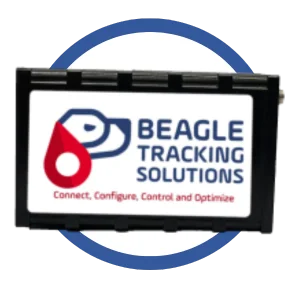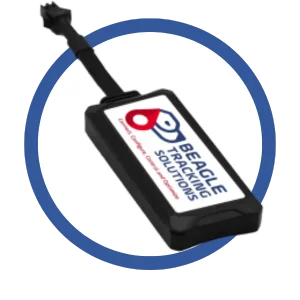GPS location tracking technology has become a vital part of daily life. Whether it’s for keeping track of assets, monitoring the location of vehicles, or ensuring the safety of loved ones, GPS trackers are transforming how we manage and monitor movement. The ability to track real-time locations online opens up many possibilities for individuals and businesses alike. As we become more reliant on technology to make decisions, GPS trackers have stepped in to provide data-driven solutions, making everyday operations smoother and more secure. In this blog, we’ll explore the various aspects of GPS location trackers online, how they work, and why they’re indispensable in today’s interconnected world.
What is a GPS Location Tracker?
A GPS location tracker is a device or software application that uses the Global Positioning System (GPS) to determine the precise location of a person, vehicle, or object. These trackers utilize satellite signals to pinpoint exact coordinates (latitude, longitude) and transmit that information over the internet, allowing users to monitor the tracked object’s location in real time.
GPS trackers come in various forms, from standalone devices to smartphone apps. They often include additional features such as geofencing, alerts, and historical tracking, which enhance their usefulness for personal and business purposes. With the growing need for real-time monitoring, many devices and apps allow you to access location data via an online interface, making them incredibly convenient.
Popular GPS Location Trackers Online
Beagle Tracking Solutions
Beagle Tracking Solutions stands out for its versatility and user-friendly features, making it an ideal choice for individuals, families, and businesses. Whether you need to track a vehicle, monitor the safety of a loved one, or safeguard valuable assets, Beagle provides a reliable and secure way to stay connected in real-time. With customizable plans, intuitive mobile apps, and robust tracking features, Beagle ensures that users can easily monitor their devices. And receive instant alerts, giving them peace of mind wherever they are.
Beagle offers real-time GPS tracking for various uses, including personal tracking, vehicle monitoring, and asset management. Its features include live updates, geofencing, and historical tracking, making it suitable for individual and business needs. Beagle’s platform is easy to use, with alerts and notifications to inform users of key events like unauthorized movement or speed violations.
How GPS Location Trackers Work
GPS location trackers rely on a network of satellites that orbit the Earth. These satellites continuously transmit signals about their location and the current time. A GPS device receives these signals, calculates the distance to each satellite, and then uses this data to pinpoint its exact location.
The key components involved in the functioning of a GPS tracker are:
- GPS Satellites: Typically, at least 24 operational satellites in orbit help triangulate location.
- GPS Receiver: The device or app that receives satellite signals and calculates the location.
- Internet Connectivity: Once the location is determined, the GPS tracker transmits the data online, usually through mobile or Wi-Fi.
- Online Platform or App: The user accesses the location data via a web portal or mobile app, often in real-time.
There are two main types of GPS trackers based on how data is transmitted and stored:
- Real-Time GPS Trackers: These trackers provide live location data as long as the device is powered and connected to the internet. They are commonly used for fleet management, asset tracking, and personal safety.
- Passive GPS Trackers: These devices store location data locally and do not transmit information continuously. To view the data, users must physically retrieve it from the device. These trackers are often used for long-term monitoring, such as in vehicle rentals or covert surveillance.
Benefits of GPS Location Trackers Online
Real-Time Monitoring
Tracking in real-time is one of the most significant advantages of online GPS trackers. Businesses can monitor fleet vehicles, parents can track children, and pet owners can ensure their animals are safe—all through an online interface. Real-time monitoring helps make quick decisions and take immediate action in emergencies.
Increased Safety and Security
GPS trackers play a pivotal role in personal and asset security. For example, tracking devices placed on vehicles can be invaluable in case of theft, increasing the chances of swift recovery. Parents can use location-tracking apps to ensure their children are safe. At the same time, elderly family members can wear GPS trackers to reduce the risk of wandering and ensure they can be easily located if needed.
Cost Savings for Businesses
Businesses that manage fleets of vehicles or other assets can benefit immensely from GPS location tracking. Fleet managers can optimize routes, reduce fuel consumption, and avoid unnecessary idling by monitoring the real-time location of vehicles. Moreover, real-time data enables businesses to improve efficiency and ensure timely deliveries.
Geofencing for Enhanced Control
Many GPS tracking systems offer geofencing, a feature that allows users to set up virtual boundaries around a specific location (such as a delivery zone or safe zone). If the tracked device crosses the defined boundary, the system sends an alert to the user. This is especially useful for businesses tracking deliveries or ensuring their vehicles stay within specific geographic areas.
Location History and Reports
GPS trackers provide users with historical tracking data, allowing them to review the locations and movements of a vehicle, individual, or asset over some time. This feature can help businesses optimize route and audit trails, while individuals can track their movements or keep an eye on loved ones.
Increased Accountability
Whether for personal or business purposes, GPS tracking creates higher accountability. It ensures that individuals and assets are where they’re supposed to be at the right time. Businesses can also use location data to verify that employees follow company protocols, improving overall accountability.
Applications of GPS Location Trackers
Fleet Management
Businesses that rely on vehicles, whether for deliveries, transportation, or fieldwork, can significantly benefit from GPS tracking. It helps with route planning, maintenance scheduling, and fuel efficiency. Fleet managers can track the locations of their vehicles in real-time, monitor driving behavior, and receive alerts in case of violations or unexpected routes.
Personal Safety
GPS location-tracking apps for smartphones have become widely popular for personal use. Parents can monitor the whereabouts of their children or elderly relatives, especially when they’re away or in potentially unsafe areas. People can also use tracking apps to share their locations with friends or family during travels or late-night outings.
Asset Tracking
GPS trackers are crucial for keeping tabs on valuable assets like construction equipment, shipping containers, or inventory in transit. With real-time tracking, companies can ensure that their expensive assets are not lost or stolen during transportation, helping to minimize financial losses.
Elderly and Health Monitoring
Senior GPS trackers often have health monitoring features like heart rate tracking and emergency buttons. These devices are handy for elderly individuals with memory problems or those prone to wandering. The tracker can notify caregivers or family members if the senior enters an unsafe area or requires assistance.
Outdoor Adventures and Sports
GPS trackers are also handy for people engaged in outdoor activities like hiking, biking, or traveling in remote areas. These trackers ensure that individuals can be located quickly in case of an emergency, reducing the risk of getting lost in unfamiliar terrain.
Security and Privacy Considerations
While GPS location tracking provides numerous benefits, it also raises privacy concerns. Unauthorized tracking can infringe upon an individual’s privacy rights, and using tracking technology responsibly is crucial. Many GPS tracking services have built-in security features, such as encryption and two-factor authentication, to safeguard user data.
Furthermore, laws around GPS tracking vary from country to country, and it’s essential to ensure that you have proper consent before tracking anyone. Tracking someone without their knowledge or permission is illegal in many regions and can result in legal consequences.
The Future of GPS Location Tracking
The future of GPS tracking technology looks promising. Advancements in 5G networks, artificial intelligence (AI), and machine learning are expected to make GPS trackers even more accurate, responsive, and feature-rich. For example, AI could allow GPS trackers to predict the best routes in real-time or analyze the movement patterns of individuals and assets for improved decision-making.
Integrating wearable devices with GPS technology will continue to enhance personal safety and health monitoring. Additionally, the growing use of connected devices in the Internet of Things (IoT) is expected to drive the demand for GPS tracking solutions further.
Conclusion
GPS location trackers online are a revolutionary technology that brings real-time tracking, enhanced safety, and greater efficiency to various industries and personal use cases. Whether you’re a business owner looking to optimize your fleet or a parent wanting to ensure the safety of your children, GPS trackers offer a wide range of applications to suit your needs. However, it’s important to prioritize security and privacy, ensuring you use GPS tracking technology responsibly. As technology evolves, GPS trackers will play a key role in shaping how we manage assets, people, and vehicles, making our lives safer, more efficient, and more connected.
FAQs
What is a GPS location tracker?
A GPS location tracker is a device or app that uses satellite signals to determine the real-time location of an object, person, or vehicle. The tracker then transmits this location data online, allowing users to monitor and track the movements remotely via an online platform or mobile app.
How does a GPS tracker work?
GPS trackers use signals from satellites in orbit around the Earth to calculate the device’s location based on the time it takes for the signal to reach the tracker. The device then transmits the location data over the internet through a mobile network or Wi-Fi so that users can access the data through an online platform or app.
What are the different types of GPS trackers?
There are two main types of GPS trackers:
- Real-Time GPS Trackers: These trackers provide live location updates as long as the device is powered and connected to the internet.
- Passive GPS Trackers: These trackers store location data that must be retrieved manually for later access.
How accurate is GPS tracking?
GPS tracking is generally very accurate, typically within 5-10 meters, depending on the environment (e.g., urban areas with tall buildings might reduce accuracy). However, certain factors, like weather conditions and interference from structures, can affect accuracy.
Can I track my phone with a GPS tracker?
Yes, many smartphones come with built-in GPS tracking features. For instance, Google Maps allows you to share your real-time location with others, and Apple’s Find My app can help track your iPhone. There are also third-party GPS apps that can be installed for enhanced tracking.



